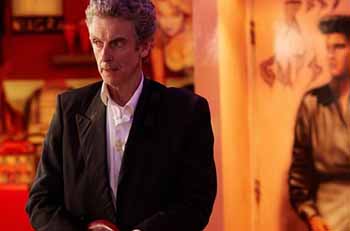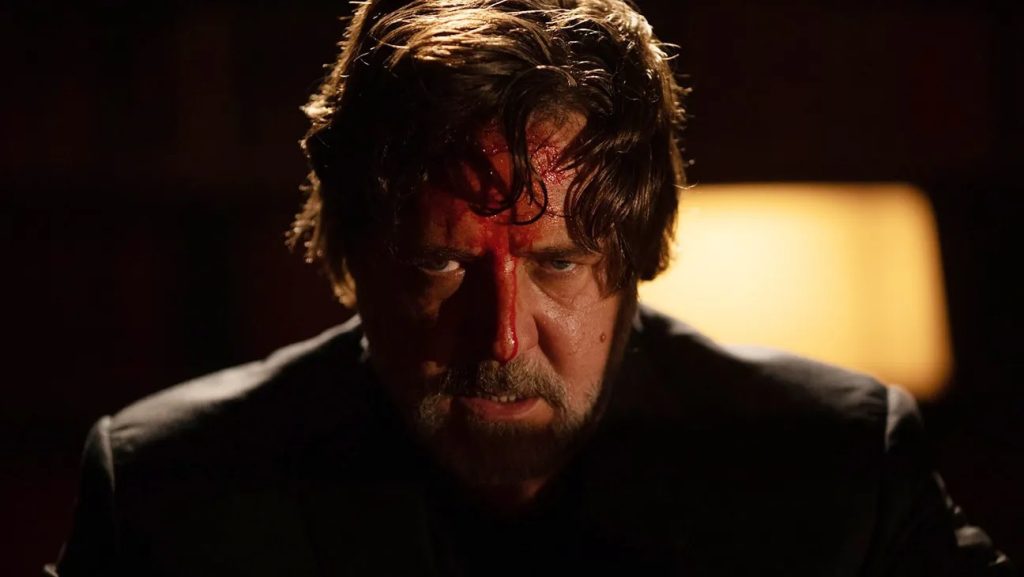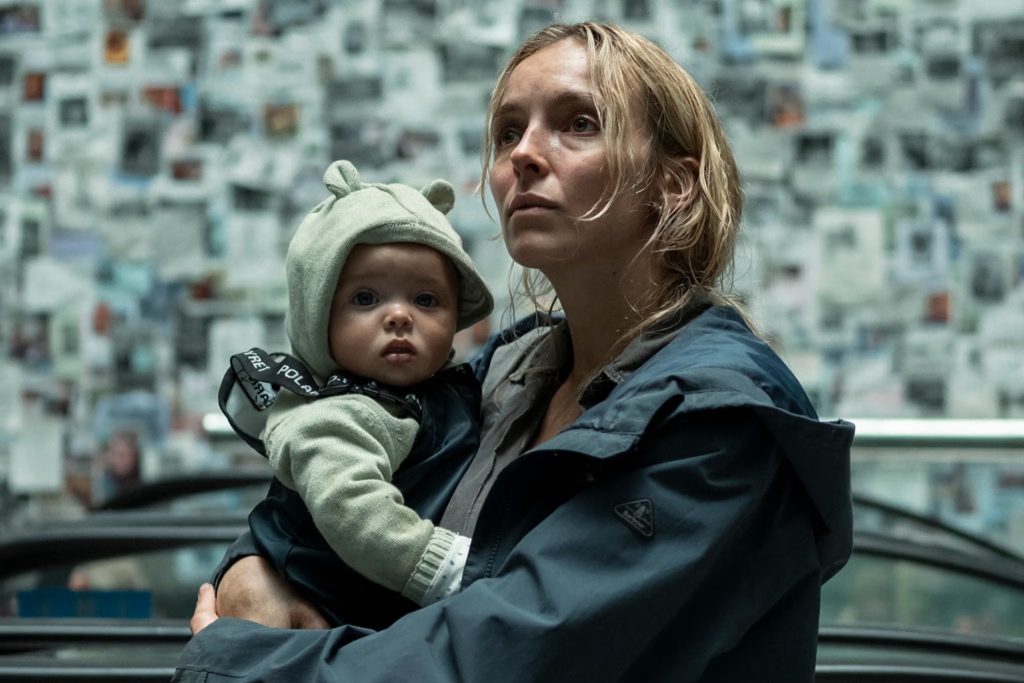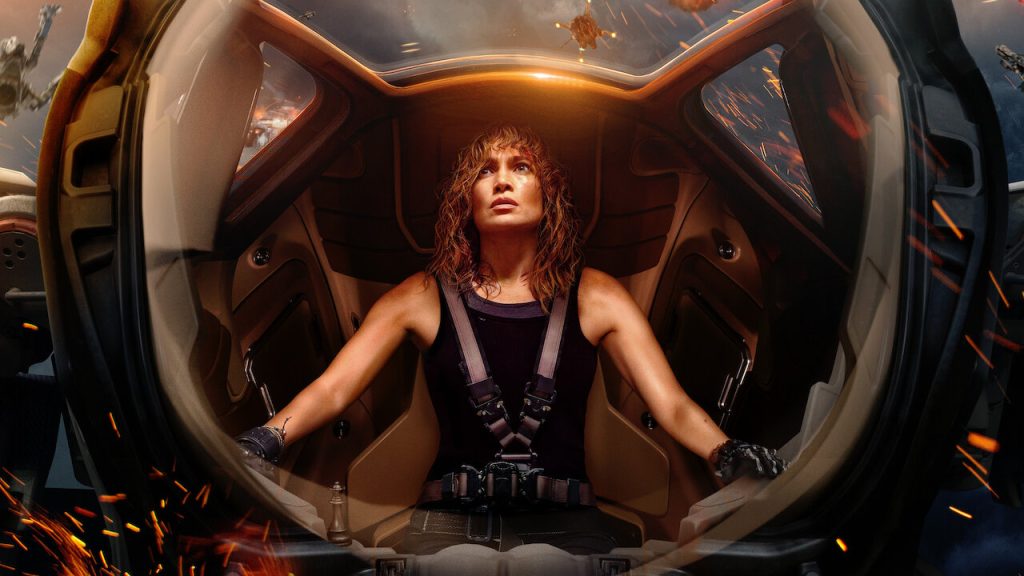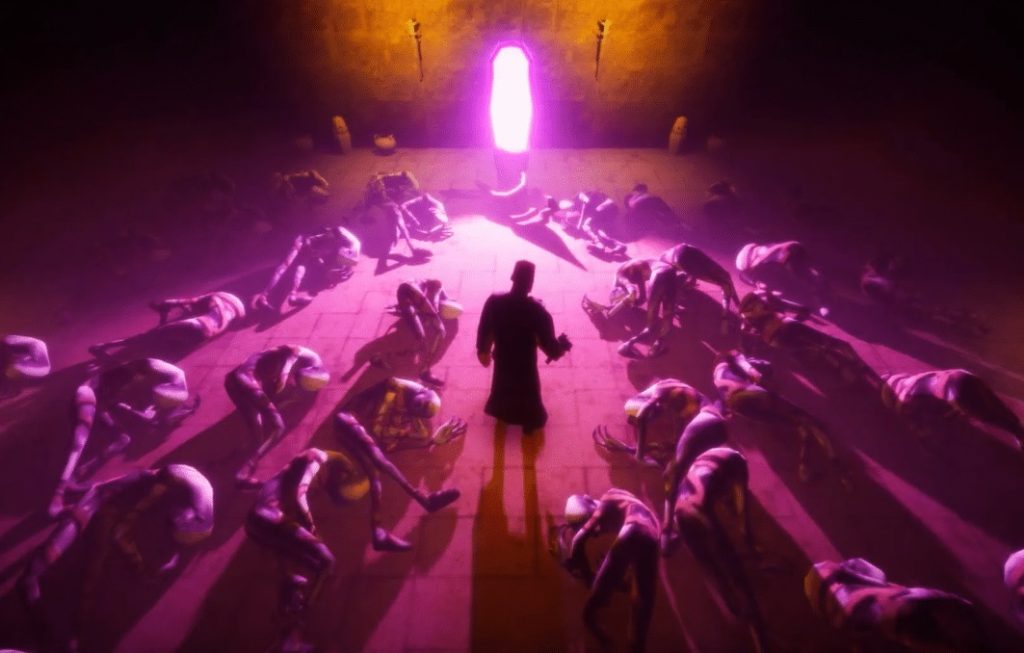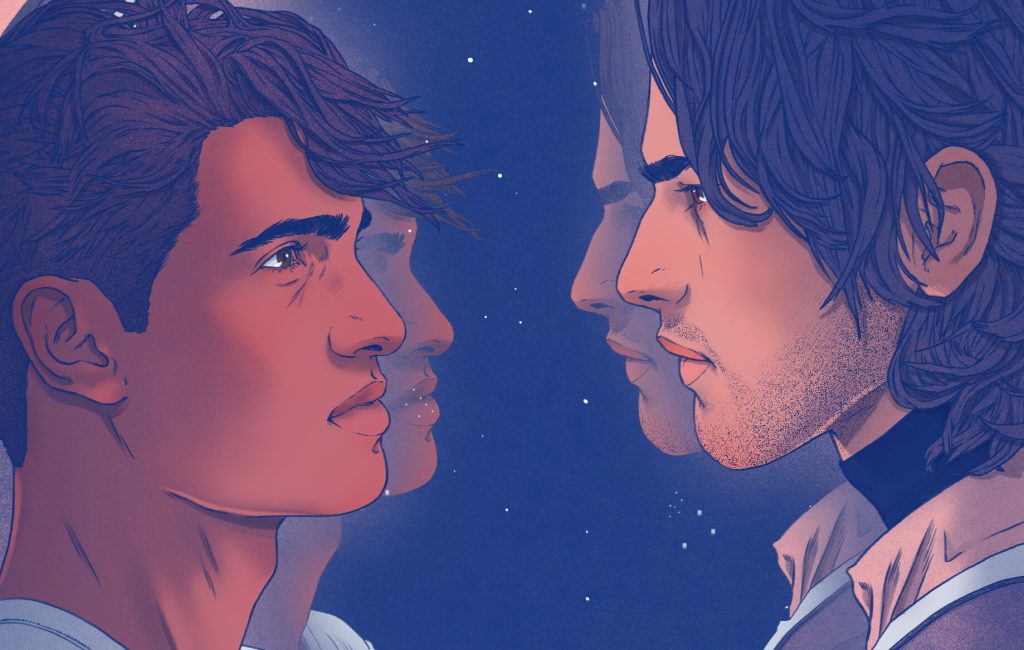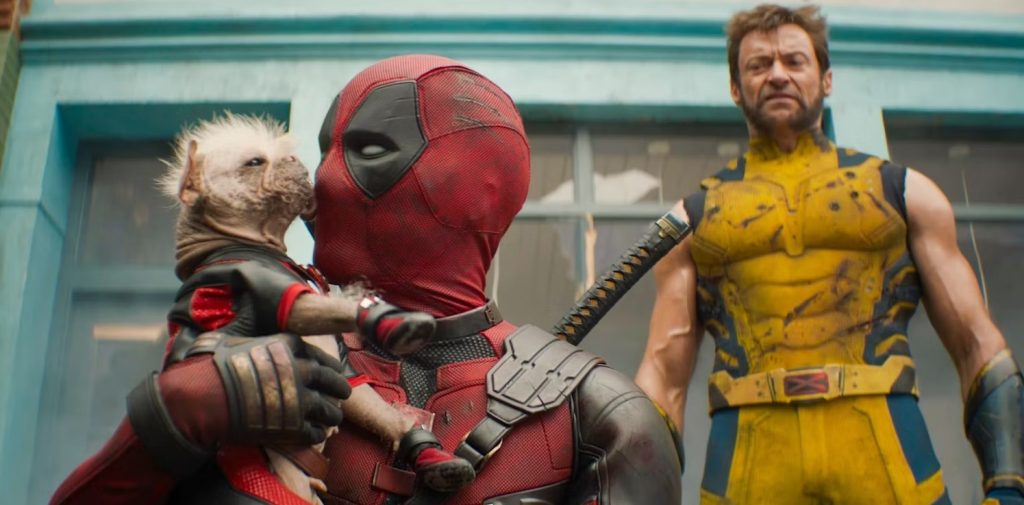 Like a magician who has already performed the most spectacular stunt of his career (at the anniversary bash of the Magic Circle, no less), and who has since been alternatively trying to shake his act up while coasting a little on the coattails of his own previous successes, Steven Moffat was going to really have to go some to make Hell Bent feel like a proper send-off for Clara, a worthwhile episode in its own right, and a convincing enough reason to bring the Time Lords back in an end of series finale – especially if he wasn’t going to make the episode about the Doctor’s people. After last week’s appetiser, a spectacular trick that divided the viewership into the mystified and the mesmerised, it was important to throw off any pretensions towards the esoteric; Steven Moffat’s getting much better these days at putting his explanations on screen, but that doesn’t always mean the ideas themselves will connect with an audience and it is important to alternate the leftfield episodes with the conservative, lest half your viewers lose their patience in the meantime. Hell Bent also, therefore, had to be satisfying and universal.
Like a magician who has already performed the most spectacular stunt of his career (at the anniversary bash of the Magic Circle, no less), and who has since been alternatively trying to shake his act up while coasting a little on the coattails of his own previous successes, Steven Moffat was going to really have to go some to make Hell Bent feel like a proper send-off for Clara, a worthwhile episode in its own right, and a convincing enough reason to bring the Time Lords back in an end of series finale – especially if he wasn’t going to make the episode about the Doctor’s people. After last week’s appetiser, a spectacular trick that divided the viewership into the mystified and the mesmerised, it was important to throw off any pretensions towards the esoteric; Steven Moffat’s getting much better these days at putting his explanations on screen, but that doesn’t always mean the ideas themselves will connect with an audience and it is important to alternate the leftfield episodes with the conservative, lest half your viewers lose their patience in the meantime. Hell Bent also, therefore, had to be satisfying and universal.
It was certainly universal, opening on the sands of 1950s Nevada and stretching to the very end of time, and between these two extremes paying a visit to Gallifrey itself – a decision which five or ten years ago would have seemed exclusive to a casual viewer but which, thanks to The Day of the Doctor, was now wholly appropriate. What was unusual was that the return of the Time Lords, while an essential component in the Doctor’s plan to rescue his companion, was treated by the episode as a necessary evil rather than the ultimate destination; as if Steven Moffat was symbolically dealing them the disrespect that the Doctor would have thought they deserved. It was a judgement call that fed into the way the writer will often use his stories as an analogy for the way he tells his stories, a philosophical sequel to Listen after last week’s more straightforward revisitation. The literal and metaphorical line in the sand, epitomising the demarcation between the grand opening and the more intimate trajectory of the actual story, was almost as glorious as the Doctor’s line ‘From time to time.’
There was an awful lot in Hell Bent – an awful lot – that either paid off on ongoing plot threads (even ones we weren’t especially aware were ongoing), or else paid lip service to narrative devices and ideas that have been hanging around for a while. The Cloister Wraiths, for example, barely appeared, and yet here was the kind of potential that Moffat has previously created entire arcs from; the ghosts of the dead protecting the ghosts of the dead, essentially, and in a way that allowed the living to benefit while keeping them at an arm’s length. Simply realised, and yet incredibly spooky, they might have been the subject of an entire story, but here they were nothing more than texture; Hell Bent had so much texture it was a pleasure that will reward multiple return visits. Perhaps the middle of the episode slowed down a touch too much in these scenes, especially for such a simple authorial deception as ‘I bet they’re all looking at me’, but the deceit was in disguising the import of the scene, rather than simply making the audience look the wrong way, and almost every line of dialogue or exchange of glances earned its place.
Steven Moffat has a habit of listening to his critics – and to fandom’s demands – and addressing their points from time to time, not necessarily always in their favour and often simply by drawing their attention to what he’s already been doing unnoticed. The two-part structure this year has been an example of that, allowing a simpler, slower pacing in the storytelling that hasn’t been entirely successful, but that has suited the Peter Capaldi aesthetic far more. The Gallifrey we see, while riffing off the Shobogan subplot from The Invasion of Time and visually very much in keeping with the Gallifrey of Last of the Time Lords, was also similar enough to the Dalek city on Skaro that the parallels between the two war-like species were very much underlined. This was a future that shared much more than a production design, there was a common ethos (and a common ridiculousness) between the two and even the Dalek catacombs we saw in The Witch’s Familiar had their parallels at this end of the series. Indeed, anyone anticipating seeing Davros and the Daleks, and Missy, back for the finale would have had their expectations superseded by a much more interesting story, and plentiful references to the opening episodes such that this felt enough like a resolution to satisfy while tangential enough to exist on its own terms. Moffat’s throwaway dialogue, those odd lines he throws in to ameliorate the viewers who like their I’s crossed and their T’s dotted, was gratifyingly apt; now we know how the Master escaped The End of Time, and what’s more, Hell Bent bothered to take something that’s been debated enough to retain a sense of ambiguity – the cross-gender, cross-colour regeneration – and put it on screen. Much like Missy’s kiss in Dark Water, forever knocking into a hat the notion of the two errant Time Lords being siblings, the General’s on-screen regeneration has cemented the idea that Time Lords can become whomsoever they please with each new reincarnation – and Moffat has opened the door for his successors, while confirming for the doubters Missy’s identity, in a way that simply isn’t open to question. It’s the minor moments like these that are so filled with meaning and import that colour Steven Moffat’s episodes so richly. He’s the master of the instant and understated reveal, too; when the President slams his be-gloved fist on the table, there’s no question as to the character’s identity, and yet it isn’t drawn attention to; the viewer is allowed to draw that conclusion for themselves – before the dialogue verifies it later on. A very inclusive way to tell stories, one that credits the audience with not just intelligence, but also dignity. And one that allows for having Donald Sumpter as Timothy Dalton’s replacement, which can never be a bad thing.
The real fan service here is the TARDIS the Doctor steals in order to make his escape, though; echoing once again the series’ origins, something that pre-empts the way the episode ends, we old schoolers are presented with an undisguised Type 40 capsule complete with original interior (as near a match for the classic series interior as you’re going to get in 16:9 HD anyway), and it’s a beautiful thing to see. This couldn’t replace the new series designs, it’s much too ‘empty’ a space for that, but it tweaks all the right nostalgic beats while at once being a perfectly integrated part of the story, so much so that any newer school fans who don’t recognise or understand what it is still won’t be confused as – much as with everything old series Moffat references in the new – it’s either integral or explained, or simply it fits within the context. This uncluttered, monochromatic TARDIS is simply an earlier model, a less sophisticated design. Indeed, Moffat’s been having a little fun with his clarifications of late, and there’s a twinkly moment of actor-as-showrunner fun when the Doctor repeats an ‘incomprehensible’ explanation as if for idiots, and Clara asks him why he can’t do it like that all the time. It’s Steven Moffat asking the viewers to pay attention and admitting that he doesn’t always make it easy for them.
Meanwhile, having teased us with retconning the Doctor’s departure as being Dalek motivated and dropped mighty hints that he might be about to address the Doctor’s half-humanness on his mother’s side, we finally discover what the Hybrid is – more or less; Moffat still enjoys leaving his resolutions ambiguous enough to be open to doubt. In fact, Moffat gives us three potentialities, very much as John Fowles did in The French Lieutenant’s Woman, and invites us to choose which of the three is the most plausible, leaning heavily towards the third without absolutely clarifying it as ‘correct’; more of that inclusivity, with the writer letting people who don’t incline towards his explanation keep their own as they prefer. He also shies away from nailing one way or the other the TV Movie’s claims about the Doctor’s provenance, preferring instead that Peter Capaldi remain enigmatically tight-lipped on the point, his face a picture of amused ambiguity. Both actor and writer know that it’s a point – much like UNIT dating – that fans enjoy arguing about more than they’d like a resolution, so the script deliberately doesn’t clarify anything while the actor’s expression shows full well that he knows where he sides (and probably where his boss does too). The explanation of what the Hybrid is, on the other hand – the one that Moffat offers as (most likely) the true one, that is – makes complete sense of the entire story, even down to the combination of its two components being entirely responsible for the legend about time being torn asunder, for the most personal of reasons, rather than some hazy generic villainous intent. This is taking sci-fi concepts and giving them foundations that echo with people’s real lives, making sense of something that might easily have been silly and instead causing it to connect with an audience in a very real way. It’s the fundamental principle of Russell T Davies’ revival given the clinical conceptuality of the best of Steven Moffat. The instant it became clear what was happening, that it was the Doctor’s desperation to save Clara that was the threat to all of time and space, was a hairs on the back of the neck moment, one of several in Hell Bent that all revolved around Clara’s fate.
And Clara’s fate was inextricably tied into those scenes in the 1950s diner in the Nevada desert, in ways that didn’t become apparent until the very end of the story. Moffat’s tricks are sometimes easy to read, and he continues to find new ways of using them that wrong-foot the viewer into anticipating their outcome incorrectly; here he used all the best techniques he honed on the likes of Coupling and Joking Apart, to lead us to expect a certain kind of storytelling that was superseded by the way he combined all of our potential expectations into a single amalgamation of everything he’s ever done. The scenes in the diner weren’t just an explanation, nor were they simply a throw forwards, nor even only a poignant coda to the main story; they were all of these things and so very much more, sad and beautiful and funny and wistful and surprising, and uplifting in the most bittersweet way. Everything dovetailed so perfectly in the last few minutes – in a manner unique to Steven Moffat – that it was impossible to guess where the story was going and impossible to see anywhere else it might have gone. Even Maisie Williams raised her game for those scenes at the end of the universe, striking a subtle balance between being sinister and reconciled and playing out one final moment of defeat before a kind of victory could be won. It goes without saying that both Capaldi and Jenna Coleman, in spite of the strong performances each of them have given in Face the Raven and Heaven Sent, were simply magnificent in Hell Bent. There have never been three consecutive episodes in which the acting from the regulars has been this deft, detailed and confident. An absolute tour de force, facilitated by Rachel Talalay’s sympathetic direction that elevates the end of this series into the television greats. It might be ‘sci-fi’ heavy, but on all personal levels this was as strong and as character-driven as anything you might see in the most profound and grounded of dramas.
This was sublime television, as near as Doctor Who has ever been to poetry. Steven Moffat has taken the deliberately fantastical, daydream-like Matt Smith era and rebooted it into an almost hard science fiction setting without jettisoning any of its lyrical qualities. The entire series has been a meditation on the way memory works, from the boy Davros to the torn out pages of Lady Me’s diary to the apparently jokey revelation about how many times the events of The Zygon Inversion had unfolded, with the ultimate destination being the Doctor undergoing a similar fate – once again in a series finale involving the Time Lords – to that of Jamie and Zoe in The War Games, or Donna Noble in Series Four. That Clara Oswald gets to ride out of town, unbeknownst to her benefactor, to an enigmatic fate is Jenny in The Doctor’s Daughter, done with thought and care. And to resurrect Clara so that aspiring to be the Doctor is no longer punishable by death but in the end rewarded in a way that sets her up as his true equal, is symmetry of the most inspiring kind. There will be people who don’t see all this, of course, people who would have liked Clara to stay dead and Gallifrey to have played a larger part, but Steven Moffat has usurped all of our expectations and delivered an episode of Doctor Who that not only makes sense of the slightly inconsistent series that preceded it, but that sings with the kind of joy that can only come out of genuine sadness. Together with Heaven Sent, this has probably been the most remarkable, elegiac, euphoric, imaginative, and fulfilling series finale we’ve ever had. Epically satisfying.

